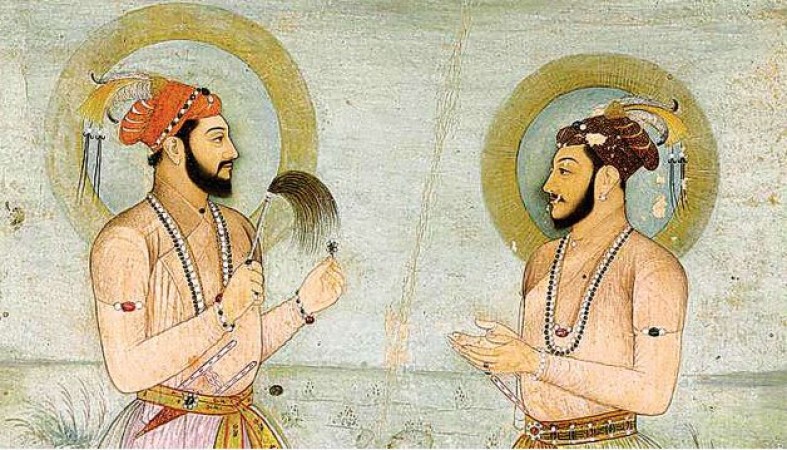
New Delhi: On this day in 1659, Aurangzeb, one of the four sons of Mughal Emperor Shah Jahan, decisively ended the struggle for the throne by defeating and executing his eldest brother, Dara Shikoh. This marked a pivotal shift in Mughal history, as Dara Shikoh's vision of religious tolerance and intellectual curiosity was overshadowed by Aurangzeb’s conservative and autocratic approach.
Dara Shikoh, renowned for his advocacy of religious harmony, had translated the Bhagavad Gita and 52 Upanishads from Sanskrit to Persian. His treatise, Majma-ul-Bahrain, explored the commonalities between Sufi and Vedantic doctrines, reflecting his commitment to bridging diverse religious traditions. Despite his efforts, Dara's progressive ideals alienated him from his more orthodox brother, Aurangzeb.
The Mughal family’s history was fraught with intrigue and conflict, with sons often overthrowing their fathers and siblings betraying one another. Dara, despite his scholarly pursuits and the support of his father Shah Jahan, struggled to secure the throne. His eventual defeat came in 1659 when Aurangzeb, driven by a fierce ambition and religious zeal, defeated Dara in battle.
Dara Shikoh was known for his intellectual and spiritual pursuits, but his lack of interest in political power and military engagements—he embarked on his first military campaign at the age of 40—proved detrimental. His disdain for the Ulema (Islamic scholars) and his fascination with Indo-Islamic mysticism further alienated him from the ruling elite.
Aurangzeb, in contrast, was fiercely determined to seize power. Shah Jahan, wary of Aurangzeb's extreme views and authoritarian nature, had hoped his other sons would succeed him instead. When Shah Jahan fell ill and was rumored to be on the brink of death, Dara faced challenges from his brothers. Shah Shuja and Murad Baksh declared themselves emperors in different regions, with Aurangzeb using this chaos to his advantage.
In 1658, Aurangzeb decisively marched against Dara Shikoh, who was residing with their father in Agra Fort. Aurangzeb's forces defeated Dara at the Battle of Samugarh in June, leading to Dara's flight and eventual capture. Dara, betrayed and abandoned by allies, was ultimately handed over to Aurangzeb.
Dara Shikoh's execution was particularly brutal. Forced into tattered clothes and shackled, he was paraded through Delhi before being executed. His severed head was sent to Shah Jahan, who was imprisoned in Agra Fort, as a symbol of Aurangzeb's dominance and a cruel blow to the former emperor.
Despite Dara Shikoh's tragic end, his legacy as a proponent of religious tolerance and intellectual exploration remains significant. His vision stood in stark contrast to Aurangzeb's reign, which was marked by religious intolerance and sectarian strife. Dara's life and death underscore a critical juncture in Mughal history, highlighting the profound impact of leadership styles on the empire's trajectory.
Bangladesh Withdraws C-130 from Tarang Shakti Air Exercise; Sri Lanka Steps In
Congress Leader Jagdish Tytler Ordered to Face Charges for Role in Pul Bangash Sikh Killings
Avani Lekhara Makes History as First Indian Woman to Win Two Gold Medals at Paralympics